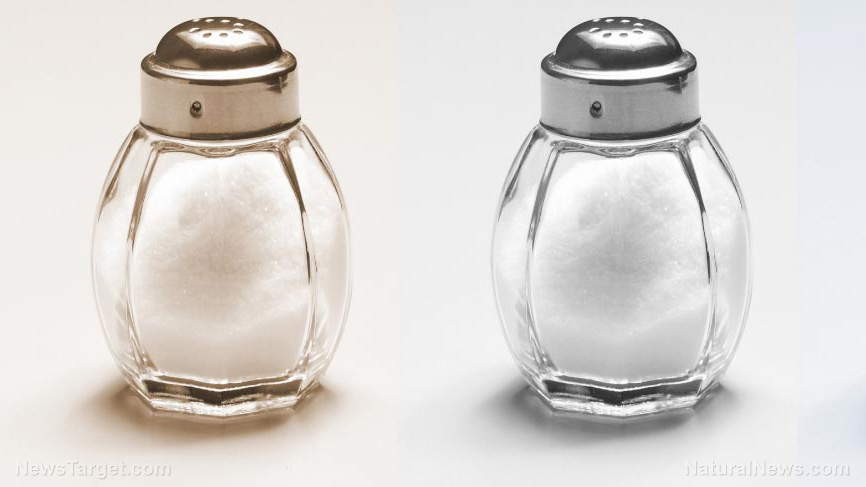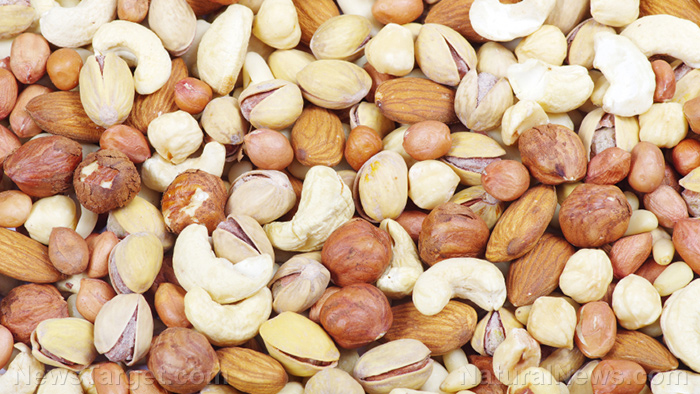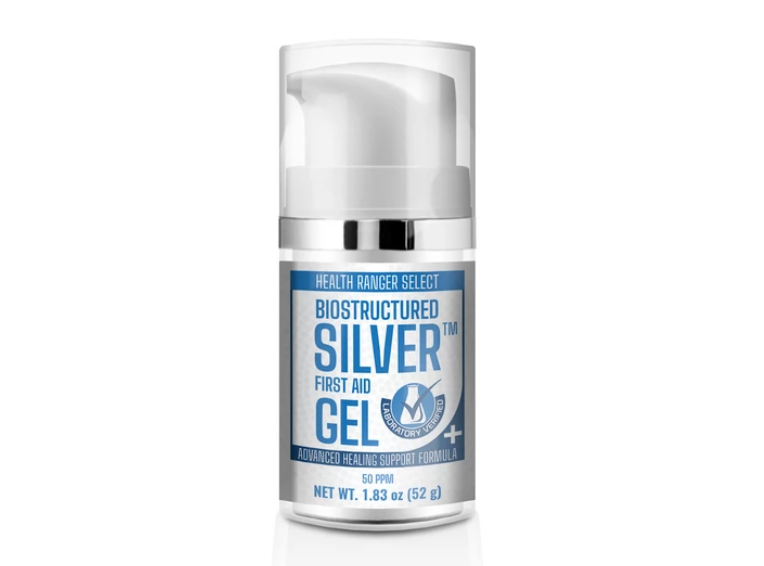The science behind home remedies: Is a saltwater gargle effective against sore throats and mouth pain?
11/13/2019 / By Grace Olson

Salt water gargles have been used for centuries as a home remedy. This simple mixture of warm water and salt can treat sore throats and mouth sores. Despite the emergence of medicated mouthwashes, people still use salt water solutions to address minor oral and throat problems.
A cheap and effective home remedy
The science behind salt water gargles is simple: It works on a process called osmosis. During osmosis, the molecules of a solvent move from an area of high concentration to an area of low concentration by passing through a semi-permable membrane, thus equalizing the concentrations on each side. When a person with an oral infection gargles salt water, the sodium in the solution passes through the tissue membrane and enters the area where the fluid infection resides (low salt concentration). Sodium then creates an adverse environment for the infection-causing bacteria while osmosis allows the salt water to draw out the fluid from the infected tissues, relieving the painful infection.
The simplicity of this mechanism of action may be the reason for the lack of research on salt water gargles. Despite being an age-old remedy, the effectiveness of this solution is underinvestigated. There is also the pending question of whether or not salt water solutions can be applied to problems that involve other parts of the body. (Related: Sage advice or old wives’ tales? Health experts look at the top 12 home health remedies.)
Saltwater versus mouthwash
Even with the existence of medicated mouthwash, it is interesting to note that people still use salt water solution as their go-to remedy. It begs the question then of which solution is more effective in treating mouth-related problems.
Sponsored: NEW Biostructured Silver First Aid Gel created by the Health Ranger combines three types of silver (ionic silver, colloidal silver, biostructured silver) with seven potent botanicals (rosemary, oregano, cinnamon and more) to create a breakthrough first aid silver gel. Over 50 ppm silver, verified via ICP-MS lab analysis. Made from 100% Texas rain water and 70% solar power. Zero chemical preservatives, fragrances or emulsifiers. See full details here.
One small study compared the two. Indian researchers gathered 45 children and divided them into three groups: The first group gargled with salt water, the second received a placebo, while the third group used a mouthwash which contained alum. Alum refers to potassium aluminum sulfate, an active compound with antibacterial properties. The participants gargled twice daily.
After 21 days, the researchers observed that, compared with children who used a placebo, those who gargled with salt water had significantly reduced levels of mouth bacteria. However, the children who used mouthwash still displayed the highest level of improvement.
On the other hand, health experts do not recommend using a mouthwash due to its alcohol content. The alcohol in mouthwash may increase a person’s risk of developing oral cancer. For that reason, mouthwash is considered unsafe for everyday use. Instead, gargling with salt water three to four times a week is recommended to maintain good oral health.
Benefits of gargling with saltwater
Salt water is cheap and easy to make. Its accessibility is one of the main reasons why it is commonly used. Some studies have also attested to the benefits of gargling with salt water, which include:
- Treats sore throat — Salt water cannot kill all bacteria, but it does help flush them out. Gargling with salt water is an effective way of removing bacteria in the mouth. It also reduces swelling in the throat and loosens mucus, providing comfort and pain relief.
- Heals gingival wounds — Salt water helps increase blood flow to the wounded area, making gum wounds heal faster naturally.
- Prevents infection – Gargling with salt water decreases the acidity of the oral cavity, making it hard for bacterial spores to breed and spread.
- Fights bad breath – When pH levels are high and there’s a lot of bacteria inside the mouth, it results in bad breath. Salt water helps lower pH levels and prevents the growth of bad breath-causing bacteria.
Despite its simplicity, a salt water solution can be used to treat many oral conditions. Its affordability and accessibility make it a great home remedy for both children and adults to use.
Learn more about other home remedies for oral problems at Remedies.news.
Sources include:
Tagged Under: alternative medicine, disease treatments, home remedies, mouthwash, natural antibiotics, natural cures, natural health, natural medicine, oral health, oral infections, pain relief, prevention, remedies, salt water, sodium, sore throat
RECENT NEWS & ARTICLES
Natural.News is a fact-based public education website published by Natural News Features, LLC.
All content copyright © 2018 by Natural News Features, LLC.
Contact Us with Tips or Corrections
All trademarks, registered trademarks and servicemarks mentioned on this site are the property of their respective owners.



















